Let’s talk about what to do with empty notebooks
If you’re looking for things to do with a notebook, keep reading.
This blog post talks about all the creative and productive things to write in a notebook. Your notebook can be so much more than just a place to jot down notes and to-do lists.
It’s a place for you to write down your thoughts, ideas, and inspiration.
It’s a place where you can organize your life, set goals, and track your progress. It’s a place for reflection and self-discovery.
In this post, I’ll share some of the most creative and exciting notebook uses to help you get the most out of this versatile tool.
I’ll show you how a notebook can be a powerful tool for achieving your goals and living your best life, from keeping a gratitude journal to creating a vision board.
Without further ado, let me show you the best ways to use a new notebook.
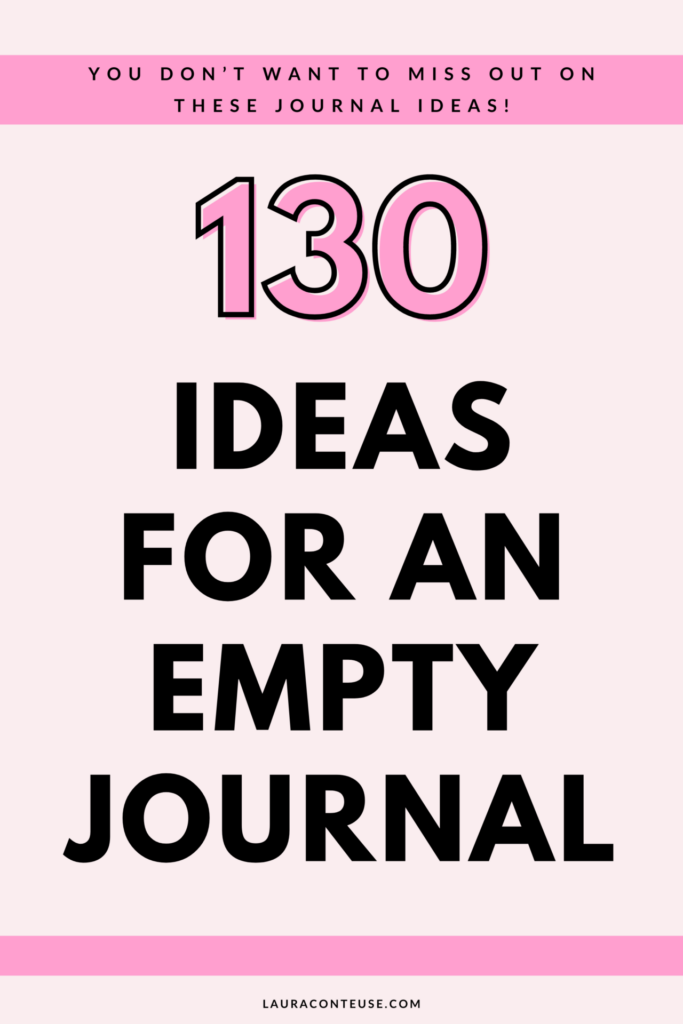
This post may contain affiliate links. That means that if you click on a link and purchase something I recommend, I will receive a small commission at no extra cost to you.
1. Organization is one of the many creative ways to fill a notebook that’s empty
A notebook allows you to structure your thoughts and ideas. This makes it easier to find and reference information later.
It allows you to keep important information, such as appointments, to-do lists, and notes, organized.
Using a notebook to plan and organize your tasks and projects helps you become more productive, stay organized, and accomplish more in less time.
Here’s a very affordable lined and ruled journal to help you get started.
- Financial management. If you keep track of your income and expenses, create a budget, and monitor your spending, you’ll find that you’re better able to manage your money and reach your financial goals. Here’s a budget planner that will help you with EVERYTHING. Besides, it’s also a bestseller.
- Organization and planning. Use an empty notebook to plan your day, week, or month. Keep track of your progress by writing down your to-do lists, appointments, and deadlines. A notebook can help you stay focused and productive by allowing you to plan and organize your tasks, projects, and goals.
- Productivity and goal-setting. A notebook can help you stay focused and productive by planning and organizing your tasks, projects, and goals. Set and track personal and professional goals in your notebook, as well as plan the steps that you need to take to achieve them. Here’s the best life and goal planner to help you achieve whatever you set your mind to.
- Time tracking. Track how much time you spend on different tasks. This will help you identify time-wasters and optimize your schedule.
- Meeting minutes. Take detailed notes during meetings, including actions, assignments, and deadlines. This will help you stay on top of follow-up tasks.
- Recipe journal and cooking. Using a notebook to record your favorite recipes and experiment with new ingredients helps you improve your cooking skills and enjoy experimenting with new flavors. Take notes on the ingredients and the cooking process, and keep track of the results. You can make your own family recipe cookbook with the help of this recipe book.
- Gardening journal. Plan, track, and document your gardening projects. Track the progress of your plants and make notes on what worked and what didn’t.
- Herbalism. Use a notebook to keep track of your herbalism studies and experiments, recipes, and the effects of various herbs. Believe it or not, this is actually one of my favorite notebook ideas, because who doesn’t love herbs?
- A list of daily tasks. Create a daily task list. Prioritize your tasks to help you stay focused and productive throughout the day. Here’s an affordable to-do daily planner that will boost your productivity for sure.
- Personal life project management. Use your new notebook to plan, organize, and track the progress of personal projects. Include timelines, milestones, and activities. This will help you stay organized and on track.
- A bullet journal. This system relies on bullet points and symbols to capture information quickly and easily. This makes it a highly efficient and customizable tool for tracking daily, weekly, and monthly activities. People who use the bullet journaling method can create their own layouts and customize the system to their specific needs. Here’s a bullet journal kit that’s suitable for beginners as well.
- Mapping your thoughts. Create visual representations or diagrams to organize information and ideas. This can help you understand complex subjects, brainstorm new ideas, and plan projects.
- Taking notes. A small notebook is an excellent tool for just taking notes, whether in class, at a meeting, or while reading a book. It allows you to stay organized, quickly and easily record information, and refer to it later.
- Networking. Keep a notebook of your professional contacts to help you build and maintain a strong professional network. Here’s a stunning address book that you can use as well.
You might also like: 99 inspirational journal prompts for personal growth

- Travel journal. Record your travels and memories, and create a scrapbook of your trip. Plan your next vacation or trip in your notebook by researching destinations and creating an itinerary.
- Fitness journal. Create a workout plan to track your progress and keep yourself motivated to reach your fitness goals.
- Travel plans. You can use those empty pages to jot down your travel plans, including your itinerary, packing list, and any reservations or tickets you’ve booked.
- Grocery list. Keep shopping lists handy in your notebook so you can easily jot down items you need to buy when you’re out and about. Write out your grocery list for the week, organized by category (produce, dairy, etc.) to make shopping more efficient.
- Habit tracker. Use a habit tracker to help you form new habits or break old ones, whether it’s drinking more water, practicing gratitude, or reading for 20 minutes each day. Here are 180 habit tracker ideas to help you organize your life.
- Genius ideas. Use your notebook as a good way to brainstorm new ideas, whether it’s for creative ideas, business ideas, or personal goals.
- Blog posts. Brainstorm a list of blog posts to write in the future.
- Business planner. If you have a side hustle or business, use your notebook to track your progress, record your expenses and income, and brainstorm new ideas.
- Meal planning. Use your notebook to plan your meals for the week, including meal prep schedules.
- Home organization. Keep a log of your home organization projects, including decluttering efforts, storage solutions, and room-by-room checklists.
- Time audit. Conduct a time audit by tracking how you spend your time throughout the day. Analyze the data to identify areas for optimization and productivity improvement.
- Work-related project brainstorming. Use your notebook to brainstorm and plan various projects in your work life. You can outline goals, tasks, deadlines, and milestones.
- Digital detox diary. Create a section in your notebook dedicated to tracking and reflecting on your digital detox experiences. Record the duration and details of your breaks from technology, as well as the benefits, challenges, and insights gained during those periods.
2. Ideas for a blank notebook that are related to personal growth
By using a notebook for journaling, personal growth, and self-reflection, you gain a deeper understanding of yourself. You’re also able to make positive improvements in your life.
- Personal growth goals. Set and track goals for personal growth, as well as reflect on progress and lessons learned. Keep track of your progress and reflect on what you’ve learned.
- Simple journaling. You can use a notebook as a simple journal in which you can record your thoughts, feelings, and experiences. This can be an excellent tool for self-reflection and personal growth. You can track your progress and reflect on your experiences over time.
- Track important things. A notebook can help you remember things by allowing you to write down important information and keep track of things you need to remember.
- Self-reflection. Reflect on your thoughts, emotions, and experiences. This can help you gain a better understanding of yourself and make positive changes in your life. Here’s a 365-day self-reflection journal to help you on your journey.
- A dream journal. Use a notebook to record your dreams, symbols, and patterns, as well as to investigate the potential meanings and messages they contain.
- Self-care journal. Track your self-care practices, set self-care goals, and reflect on the impact of various self-care activities on your mental and physical well-being. Here’s a self-care journal that encourages general well-being while helping you cultivate a healthy lifestyle.
- Mind-body journal. Keep a notebook to record your mind-body practices like yoga, tai chi, or qigong.
- Mindfulness training. Keep track of your mindfulness practices, such as meditation, breathing exercises, and gratitude journaling. Reflect on how they affect your overall well-being.
- Coloring book for mindfulness. Make a coloring book in your notebook with mandalas, patterns, or other designs that you can color in to help you relax and focus.
- Make a vision board. Create a visual representation of your goals, dreams, and aspirations. Cut and paste pictures and words from magazines into the notebook.
- Gratitude journal. Use your notebook to write down things you are grateful for; this will help you focus on the good in your life. Designate a special place in your notebook to write down things you’re grateful for each day or to reflect on your accomplishments and wins. Here’s my favorite gratitude journal that requires only ONE minute of your day. It’s the best way to start practicing daily gratitude.
- Daily routines. You can use any type of notebook to record your daily routines and track your progress toward your goals.
- Junk journal. Use the blank pages of your notebook to write down your thoughts, ideas, dreams, or anything else that comes to mind.
- Happiness journal. Create a happiness journal in your notebook where you write down things that make you happy or grateful each day. Write down the good things that happen to you throughout the day, no matter how small.
- Morning pages. Write down your first thoughts in the morning in your notebook as a way to clear your mind and start the day fresh.
You might also like: New year journal prompts to do some new year reflection

- Interactions. Use your notebook to record your interactions with lots of people throughout the day, such as coworkers, family members, or friends.
- Vision journal. Use your notebook as a vision journal to write down your goals, aspirations, and dreams for the future.
- Love notes. It can be a great idea to use your dedicated journal as a place to write love notes to your significant other, family members, or friends.
- Mental health. Put your notebook to good use and use it to track your mental health, record your emotions, or write down any triggers or coping mechanisms.
- Nightly reflection. At the end of the day, use your notebook to reflect on your day and write down any significant events or accomplishments. You can also end your day in a wonderful way by writing down something positive that happened that day or something you’re looking forward to in the future.
- Failure diary. Use your notebook to reflect on and learn from your failures. Document the lessons you’ve learned, the resilience you’ve built, and the growth that has resulted from these experiences.
- Values exploration. Explore your core values by listing them and reflecting on how they influence your decisions, actions, and overall sense of fulfillment. Consider aligning your daily life with your values to promote personal growth.
- Strengths inventory. Assess your strengths and talents by creating a comprehensive inventory. Reflect on how you can further develop and leverage these strengths to improve your personal and professional life.
- Inspirational stories. Compile a collection of inspiring stories from books, articles, or personal experiences that have had a significant impact on your personal growth. Reflect on the lessons and insights gained from these stories.
- Adventure log. Document your adventures and explorations, whether big or small. Record the places you visit, the new experiences you try, and the lessons you learn along the way.
- Relationship reflections. Reflect on your relationships with others, including family, friends, or colleagues. Explore ways to improve communication, build stronger connections, and foster personal growth through meaningful interactions.
- Nature connection. Use your notebook to deepen your connection with nature. Write about your outdoor experiences, your observations of the natural world, and the lessons you learn from immersing yourself in nature.
- Personal manifesto. Write a personal manifesto that outlines your core beliefs, values, and aspirations. Draft and refine your manifesto, reflecting on the principles that guide your personal growth journey.
- Strengths challenges. Identify specific challenges or activities that align with your strengths and encourage personal growth. Document these challenges in your notebook, track your progress as you step outside your comfort zone, and leverage your strengths to overcome obstacles.
- Curiosity log. Foster a sense of curiosity and lifelong learning by maintaining a curiosity log in your notebook. Write down questions, ideas, and topics that pique your interest. Use this space to explore and delve deeper into subjects that intrigue you.
3. Empty notebook ideas that are connected to learning
- Knowledge management. Use your notebook to organize and categorize information so that you can quickly find and access what you need. If you’re looking for things to do with a notebook, this is the most useful one, for sure.
- Language studies. A notebook can be an excellent tool for practicing writing and learning a new language. You can use it to take notes, do exercises, and make flashcards. Using a notebook to practice writing and study a new language allows you to learn a foreign language more effectively.
- Brainstorming. To generate ideas for a project, paper, or presentation, keep a notebook handy. Do a brain dump, write down any ideas that come to mind, and use them to create a plan of action.
- Ongoing learning. Plan and track your ongoing learning, whether it’s taking courses, reading books, or participating in webinars. This will help you stay up-to-date on the latest information in your field.
- Book notes. Take notes, write book reviews, and discuss the books you’re reading with a book club. Here’s a book club journal that helps you keep track of everything.
- Help support your studies. Take study notes, make flashcards, and organize study materials for exams or projects in your notebook.
- Keep track of useful books. For example, if you’re reading self-help books, use your notebook to take notes on the key points, insights, and exercises from the book.
- New words. Use your notebook to write down new words you come across in your reading, conversations, or media, along with their definitions, to expand your vocabulary.
- Research log. Create a dedicated space to document your research process. Record your research questions, sources, key findings, and insights as you explore various topics of interest.
- Study group notes. If you’re part of a study group or learning community, use your notebook to take collaborative notes, share study resources, and discuss key concepts and ideas.
You might also like: Practical things to write in a notebook when you're bored
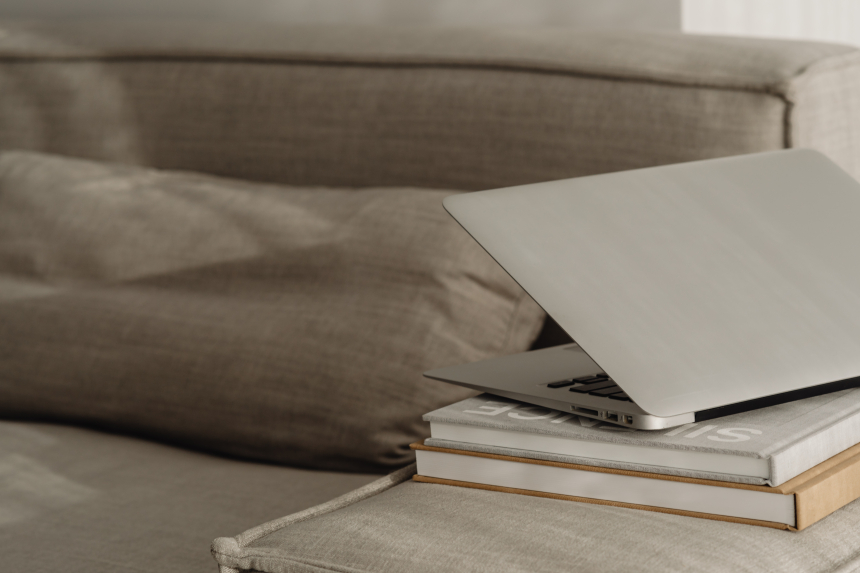
- Reflection prompts. Designate a section of your notebook for reflection prompts related to your learning journey. Write down thought-provoking questions that encourage deep self-reflection and critical thinking.
- Skill-building tracker. Track your progress and development in specific skills or areas of expertise. Set goals, record practice sessions, and document milestones as you work on honing your abilities.
- Podcast or lecture notes. Use your notebook to take detailed notes while listening to educational podcasts or attending lectures. Summarize key points, capture insights, and jot down your thoughts and questions.
- Case study analysis. If you’re studying a field that involves case studies, create a section for analyzing and dissecting case studies. Write down the background, key issues, proposed solutions, and your own reflections on each case.
- Learning challenges. Set up learning challenges for yourself and document your progress. Whether it’s memorizing a poem, solving a difficult puzzle, or learning a new coding language, track your efforts and celebrate your achievements.
- Learning resources compilation. Create a compilation of learning resources that have been valuable to you. Write down book recommendations, online courses, articles, or YouTube channels that have enriched your learning journey.
- Concept mapping. Use your notebook for creating concept maps or mind maps to visualize connections between different ideas, theories, or subjects. This visual representation can help deepen your understanding and facilitate knowledge retention.
- Field trip journal. If you’re engaging in experiential learning or field trips, use your notebook as a journal to document your observations, insights, and reflections from each trip.
- Vocabulary expansion. Dedicate a section to expanding your vocabulary in a foreign language. Write down new words you encounter along with their definitions, examples of usage, and any related notes or associations.
- Collaborative learning projects. Use your notebook to collaborate on learning projects with peers or classmates. Brainstorm ideas, assign tasks, and document progress as you work together on group assignments or projects.
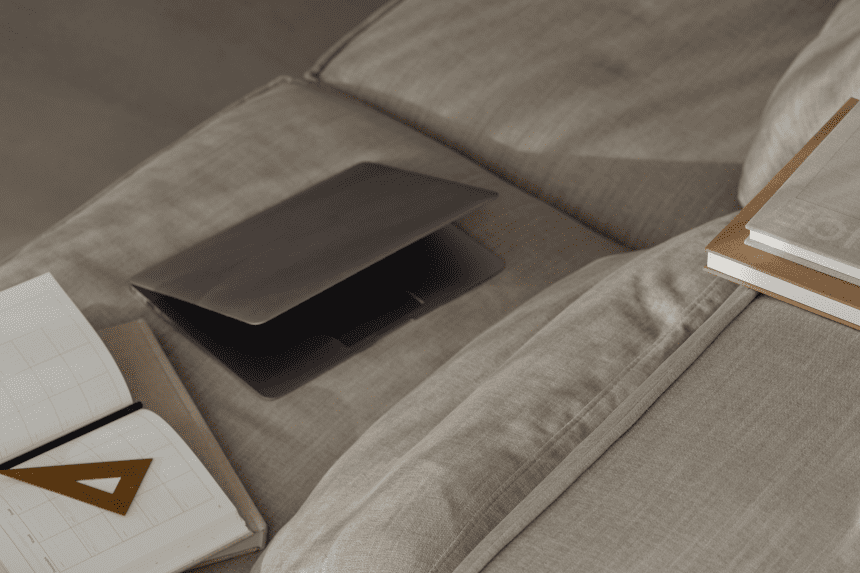
4. Notebook activities that are creative and fun
A notebook can be a great tool for sparking creativity. You can use it to brainstorm ideas, sketch and draw, or write down inspiration.
This improves your creativity. It also allows you to come up with new and innovative ideas.
- Prompts for creative writing. Write down creative writing prompts. Then use them to inspire your writing.
- Interviews. Conduct interviews with friends, family, or people you admire using a notebook.
- Track a movie or a television series. Keep track of the movies and TV shows you’ve seen, the ones you want to see, and your ratings or simple movie reviews.
- Q&A book. Create a Q&A book in a notebook by asking and answering questions about yourself or others.
- Storyboarding. Create storyboards for film, animation, or video projects in a notebook.
- Make a comic strip. Create your own comic strip characters and storylines.
- The time capsule. Create a time capsule of your current life in a notebook by writing down your thoughts, feelings, and memories and sealing them for a set period of time.
- Daily drawings. Every day, draw something new, whether it’s a portrait, a landscape, an object, or something else.
- Game design. Create your own board games, card games, or sketches for video games in a notebook.
- Photo album. Create a photo album by sticking the photos in or drawing them. Don’t forget to write captions or notes. Here’s an affordable photo journal that has lots of space.
- Tarot journal. Use a notebook to record your tarot card readings, including the meanings of the cards and their placement, as well as your thoughts on the insights you received.
- Word games. Play word games like crossword puzzles, word searches, and word jumbles.
- The game of Mad Libs. Play Mad Libs with friends, family, or by yourself in your notebook.
- Drawing and sketching. Make sketches, drawings, or illustrations. A notebook is a great place to practice your skills and create your art, whether you’re an artist or just enjoy doodling.
- A treasure hunt. Make a scavenger hunt list in a notebook, and then go out and find the items on the list.
- Instructions for DIY crafts. Use a notebook to jot down instructions for any DIY projects you want to try.
- Personal branding. Create a personal branding plan to help you build a strong professional reputation and stand out in your field. I personally use this deluxe Legend planner for this because I like its layout.
You might also like: The best new month journal prompts for goal-setting
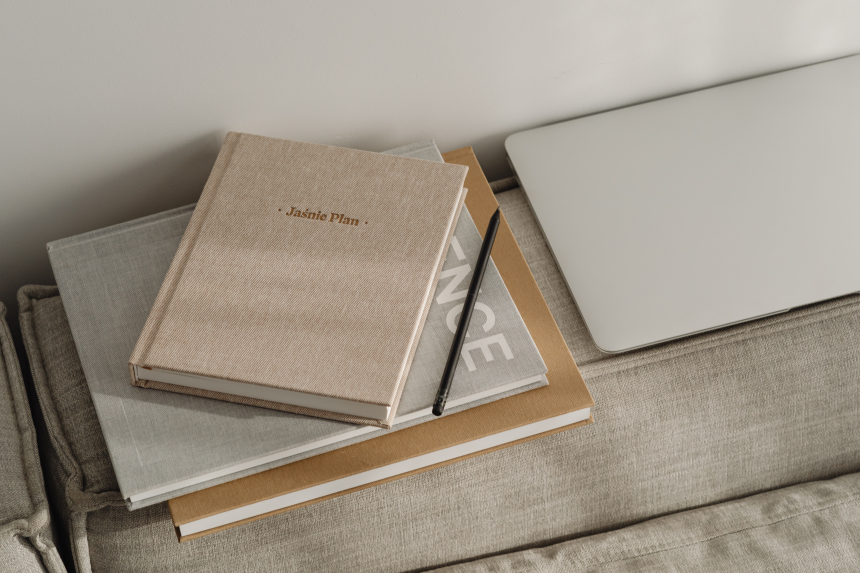
- Creative writing journal. Write short stories, poetry, or a novel. It can be a great way to express yourself creatively and improve your writing skills.
- Practice your handwriting. Practice handwriting, brush lettering, calligraphy, or hand lettering in your notebook. When you do some lettering practice, you might notice an improvement in your handwriting. Here’s a calligraphy workbook that’s the best invention since sliced bread.
- Puzzle book. Create your own puzzles, such as Sudoku, crosswords, word searches, and so on.
- Songwriting. Use a notebook to jot down song lyrics or melodies.
- Bucket list. Create a bucket list in your notebook, listing all the things you want to do or accomplish in your lifetime.
- Get your creative juices flowing. Use your notebook to brainstorm and jot down ideas for creative projects, such as writing, drawing, crafting, or even learning a new skill.
- Favorite songs and quotes. Write down your favorite quotes and songs in your notebook as a way to inspire and uplift yourself.
- Good news. Write down good news or positive experiences in your notebook to look back on when you need a pick-me-up. This is also among my favorite things to do with a notebook.
- Revisit old pages. Use the used pages of your notebook to create art or doodles, using the blank spaces to let your creativity flow.
- Have fun. Write in your notebook in a fun way, such as by creating a bullet journal or using colorful pens and stickers to add some flair.
- Collage corner. Designate a section of your notebook as your collage corner. Cut out images, words, and phrases from magazines or printouts and create collages that reflect your mood, aspirations, or current interests.
- Doodle challenges. Challenge yourself with doodle prompts or drawing challenges. Create a series of doodles based on specific themes or prompts, allowing your imagination to run wild and exploring different drawing techniques.
- Recipe swap. Dedicate a section to a recipe swap, where you can write down your favorite recipes and exchange them with friends or family members. Personalize the recipes with handwritten notes, tips, and variations.
- Story starters. Write down story starters or writing prompts to ignite your imagination and creativity. Use these prompts to create short stories, poems, or even a serialized novel in your notebook.
- Memory lane. Create a section dedicated to capturing and preserving memories. Write down memorable moments, special events, or adventures, and decorate the pages with mementos such as tickets, photographs, or small keepsakes.
- Character development. Use your notebook for character-development exercises. Create profiles, backstories, and traits for fictional characters, giving them life and depth as you explore their personalities and motivations.
- Music exploration. Create a dedicated section to explore different genres of music. Write down your thoughts and reflections on songs, albums, or artists you discover, and create personalized playlists with accompanying notes.
- Language mash-up. If you’re learning multiple languages or interested in language experimentation, create a language mash-up section. Combine words, phrases, and expressions from different languages to create unique sentences or short stories.

Goal-related ideas to write in a notebook
This is the last category in this list of 130 ways to use a blank notebook.
Whether you’re aiming for personal growth, career advancement, or overall well-being, this list of ideas for notebook uses will help you organize your thoughts, stay motivated, and make progress towards your aspirations.
- Long-term vision. Write down your long-term vision or life goals. Describe where you want to be in the future and what you hope to achieve.
- SMART goals. Create a section to outline your smart goals (Specific, Measurable, Achievable, Relevant, and Timebound). Write down goals that are clear, actionable, and well-defined.
- Action plan. Develop a detailed action plan for each goal. Break down your goals into smaller, manageable tasks, and write down the steps you need to take to achieve them.
- Progress tracker. Create a progress tracker in your notebook. Record your progress regularly and update it as you make strides toward your goals.
- Goal reflection. Dedicate a section to reflecting on your goals. Write about the progress you’ve made, challenges encountered, and lessons learned along the way.
- Inspirational quotes. Write down motivational quotes that inspire and uplift you. Include quotes that resonate with your goals and aspirations.
- Goal rewards. Create a list of rewards that you will give yourself upon reaching specific milestones or achieving your goals. Write down the rewards to keep yourself motivated.
- Goal visualization. Use your notebook to visualize the successful attainment of your goals. Write vivid descriptions of how it will feel and look when you achieve what you set out to accomplish.
- Goal gratitude. Practice gratitude for the progress you’ve made toward your goals. Write down the things you’re grateful for in relation to your goals and the opportunities that have come your way. This is among my favorite ideas for empty notebooks.
- Obstacle overcoming. Identify potential obstacles or challenges that might hinder your progress. Develop strategies to overcome them and write them down in your notebook.
- Skill development. Write down the skills you need to acquire or improve upon to achieve your goals. Track your skill development progress and document the resources you use.
- Accountability buddy. Find an accountability buddy or create an accountability system in your notebook. Write down your commitments and check in regularly to stay on track.
- Goal reflection questions. Create a list of reflective questions related to your goals. Use these prompts to dive deeper into your motivations, progress, and future actions.
- Goal inspiration. Collect stories, articles, or success stories related to your goals. Write summaries or key takeaways from these sources to keep yourself inspired and motivated.
- Lessons learned. Reflect on the lessons you’ve learned throughout your goal-setting journey. Write down insights, personal growth, and any adjustments you’ve made along the way.
- Goal adaptation. Allow for flexibility in your goals. Write about how you adapt and adjust your goals as circumstances change or as you gain new insights.
- Celebrations. Create a space to celebrate your achievements, both big and small. Write about your accomplishments, milestones reached, and the joy and satisfaction you feel.
You might also like: 150 self-love journal prompts to help you practice daily self-love
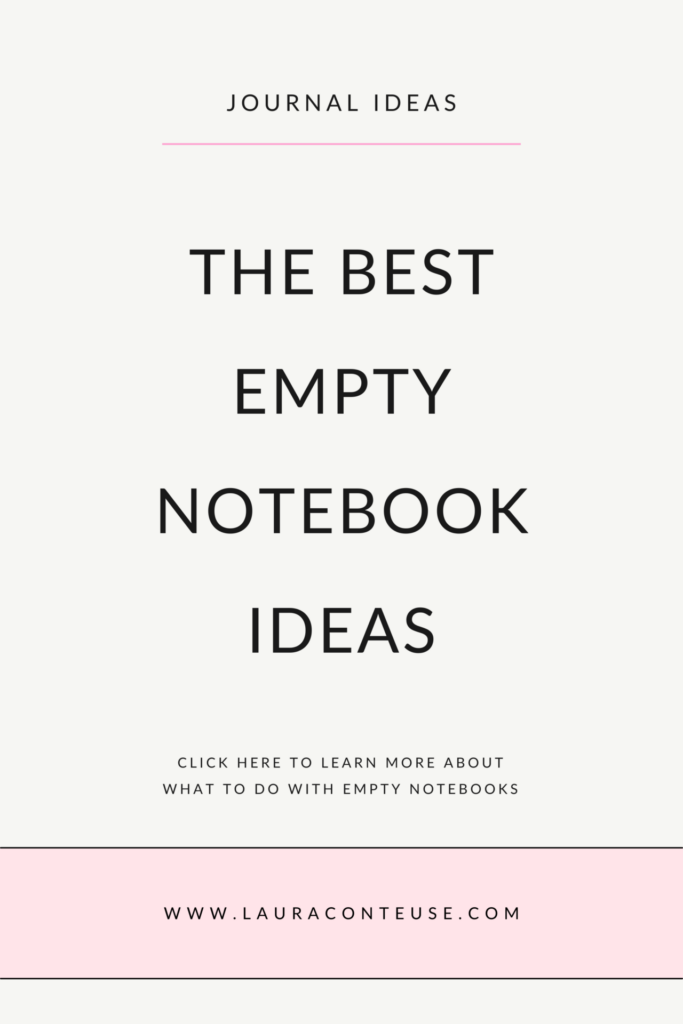

FAQ: Why is it beneficial to use a blank journal?
Now that we’ve talked about what to do with a new notebook, let’s take a look at the many advantages and possibilities that a notebook can provide.
Once you start using a notebook, several things can happen in your daily life:
Portability
Notebooks are portable. This allows you to take it with you wherever you go. This makes it easy to jot down ideas, take notes, or keep track of tasks and appointments while on the go.
Self-reflection
Keeping a daily journal or notebook can help you gain insight and improve your problem-solving skills by allowing you to step back and reflect on your thoughts and actions.
Stess-relief
Creativity
Keeping a notebook can also serve as a creative outlet, sparking new ideas and inspiration. Writing in a notebook allows for free-form brainstorming and idea generation.
Clarity
Because the physical act of writing engages multiple areas of the brain, writing things down by hand can help you better understand and retain information.
Durability
Unlike digital notes, which can be lost due to technical failures, notebooks can last for a long time.
Customization
You can add personal touches and make it look exactly how you want it to.
Better memory
Research has shown that writing by hand can improve memory retention. The physical act of writing engages different parts of the brain that are responsible for memory.
You can also revisit old notebooks to see how you’ve grown and evolved over time or to spark inspiration for new ideas.
Flexibility
If you have a bunch of empty notebooks, you can use them for a variety of tasks, including taking notes, journaling, sketching, and more.
Share your notebook with a lot of people or keep it private—the best thing about a notebook is that it’s entirely up to you how you use it and who you share it with.
And if you have any empty journals lying around and you’re looking for cute things to do with an empty journal, why not start your own journal and see where it takes you?
You might also like: 100 journal prompts for beginners that you're going to love
Well, these are my favorite things to do with a notebook
What to write in a notebook when bored? Do you know any other creative things to do in a journal? I would love to hear your thoughts!

I’m a personal growth and self-care expert, as well as an avid motorcycle enthusiast and coffee and sweets lover. Through Lauraconteuse, I provide insightful and practical advice on topics such as self-care, self-love, personal growth, and productivity, drawing from my very own extensive experience and knowledge in the field. My blog has helped countless people achieve their goals and live more fulfilling lives, and my goal is to continue to inspire and empower others.


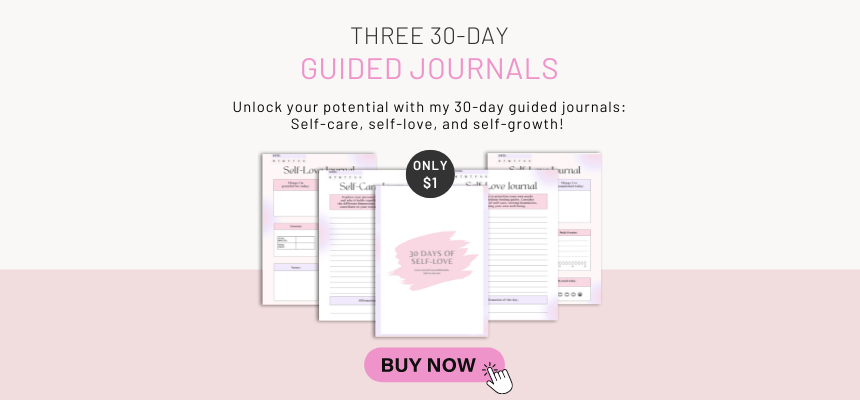
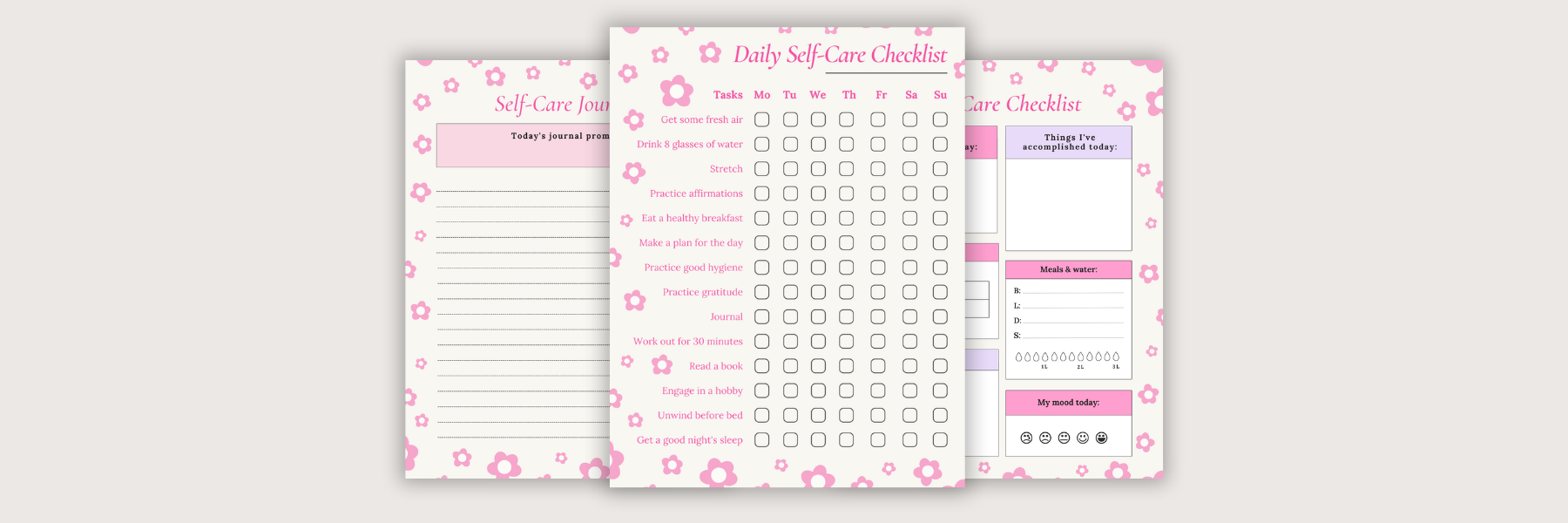





Such a great, informative article for those who have an empty journal and don’t know what to do with it! Thanks for sharing ☺️
Just found your website and love this article! I love the personal growth and creative ideas. Starting a consistent journaling practice is one of my goals this year! I look forward to reading more articles!
I take notes daily. I try to do it on the go using note apps on the phone, laptop or using a physical notebook. This helps me keep track of many tasks I perform daily or some other projects am working. I ‘d like to implement some of the creative ideas on note taking that you have suggested that will make it more interesting and enjoyable at the same time.
I love all these ideas! Have lots of notebooks here so this helps a lot.
I have never thought of using a notebook this way. Thanks for sharing so much ideas.
Interesting article. Can’t wait to use these awesome suggestions to fill up many notebooks I have lying around the house.